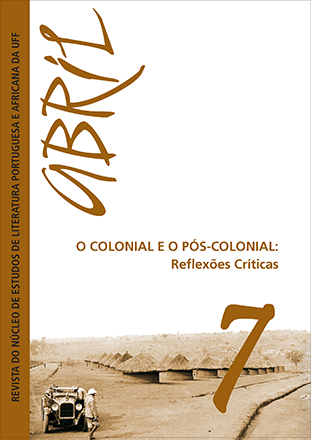The end of colonialism in Angola and the weaving of the narrative-nation, under Pepetela’s view
DOI:
https://doi.org/10.22409/abriluff.v4i7.29739Keywords:
Pepetela, Yaka, colonialism, Angolan-related subjectsAbstract
The novel Yaka, written by the angolan writer Pepetela, is structured in five segments: “The mouth – 1890-/1904”, “The eyes -1917”, “The heart-1940/1941”, “The sex-1961”, and “The legs-1975”. Each segment corresponds to a generation of the Semedo’s family whose journey begins with the banishment of Oscar, Portuguese, and ends with Joel, Oscar’s great-grandchild as a member of the MPLA ranks; this is also related to a certain historical time characterized by the beginning of the military conflicts and the stirring up of the fight between the colonizer and those who were being colonized. Despite being labeled in fiction as a story of a Portuguese family of settlers settled in Angola, the Semedo’s saga reaches during its narrative, a wide meaning due to its intrinsic connection with the wars and with all the problems originated as a result of the colonization. The present work aims to show that all this process of rebuilding the past, through fiction, has to do , among other things, with the transcodification of the historiographic context that- the moment it goes through the fiction writer’s ink or, if we prefer, goes through the literary text screen – it suffers many changes. The narrative events described in the novel are threads in the Angolan history rewoven majestically by Pepetela, who with “skill and talent” reorganizes and, at the same time, weaves his “tale-nation”.
Downloads
Downloads
Published
How to Cite
Issue
Section
License
I authorize the journal Abril - NEPA/UFF to publish the paper of my authorship/responsibility that I now submit, in case it is accepted for online publication.
Moreover, I declare that this contribution is original, that it was not submitted to any other editor for publication, and I sign the present declaration attesting the truth of all its contents.
The copyright of the works published at the virtual space of the journal Abril - NEPA/UFF are automatically entitled to the journal. Their total or partial reproduction is conditioned to the authors' citations and publication data.

Abril is licensed under a Creative Commons - Attribution-NonCommercial 4.0 International (CC BY-NC 4.0).









